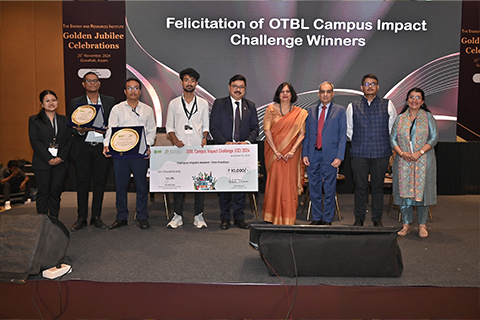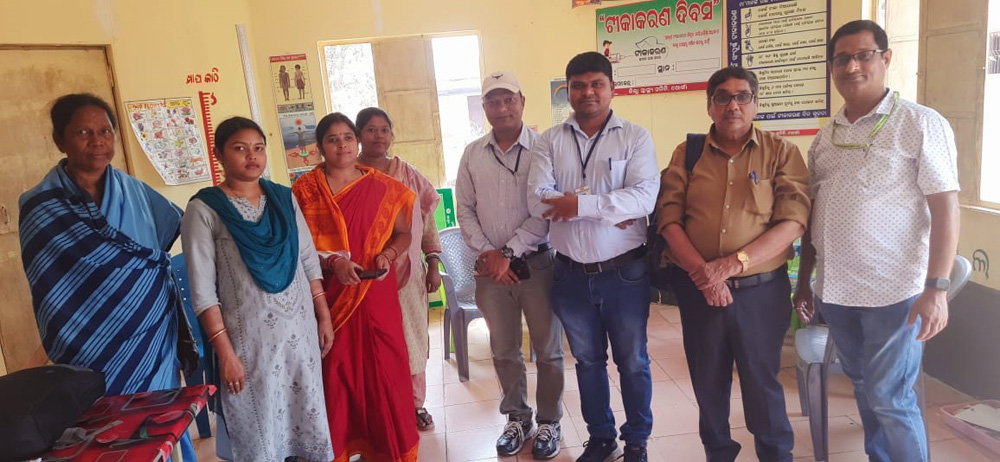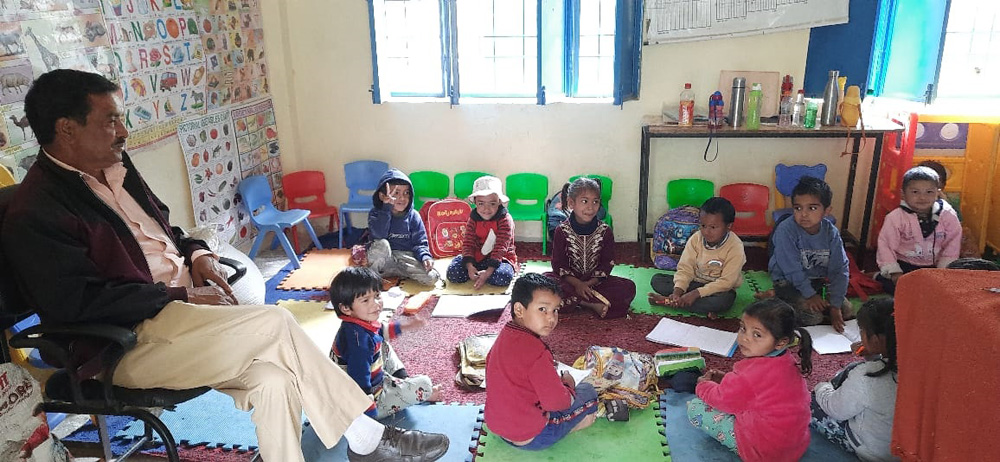Sprouting sustainable, nutrition-sensitive food systems
May 10, 2025
| Dr Manish Anand, TERI and Ms Vidhu Gupta, IIT Roorkee
| The Hindu
India's struggle with nutritional issues must lead to a transformation where nutrition becomes an integral of agriculture and economic planning, says Dr Manish Anand, Senior Fellow, Resource Efficiency and Governance Division, TERI and Ms Vidhu Gupta, Project Research Scientist, IIT Roorkee.
India's dilemma food rich, nutrition insufficient
October 16, 2024 |
October 16, 2024
Dainik Jagran
Dr Manish Anand, Senior Fellow of TERI, an organization working on sustainable development, said there has been no coordination between our food security and nutrition security policies. India has diverse agricultural systems according to different agro-climatic zones. Our food security policies encouraged monocropping, in which more focus was given on wheat and paddy. We created a very strong ecosystem from their production to procurement. This gave us food security, but nutrition security was not given that much importance.
Aaranyak-TERI holds capacity building training for grassroot leaders in Kohora
July 4, 2024 |
July 4, 2024
The Shillong Times
A two-day workshop on participatory mapping for grassroot leaders for implementation of seventh operational phase of GEF small grants was organised collaboratively by TERI (The Energy and Resource Institute) and region's premier biodiversity conservation organisation Aaranyak recently. The workshop was organised during June 27-28 at the Community Resource Centre, Chandrasing Rongpi Memorial High School, Chandrasing Rongpi of Kaziranga-Karbi Anglong landscape in Assam.
TERI-UNOPS Initiative Empowered 27000 School Children in Uttar Pradesh on Climate Change, Health, and Hygiene Practices
June 21, 2024 |
June 21, 2024
Asian News International (ANI)
A TERI-UNOPS (The Energy and Resources Institute) United Nations Office for Project Services collaborative initiative on "Capacity Building Programme Targeting School Children on Climate Change, Health, and Hygiene across 11 Districts of Uttar Pradesh, India", concluded with a National Conference held in New Delhi on 20 June 2024.
Holistic Wellness Centre & Meghalaya Traditional Knowledge Portal launched
February 22, 2024 |
February 22, 2024
The Shillong Times
On February 22, 2024, a significant milestone was achieved in Meghalaya with the inauguration of the Holistic Wellness Centre and the launch of the Meghalaya Traditional Knowledge Portal. A Collaborative programme of Bio-Resource Development Centre, an autonomous R&D institution under Planning Department, Government of Meghalaya, The Energy and Resources Institute, New Delhi and the Meghalaya Basin Development Agency.
From alarm bells to recess bell: Address nutrition gaps
October 19, 2022
| Dr Manish Anand and Dr Meena Sehgal
| Mint
The need of the hour is a multi-pronged approach focused on short supply chains, sustainable public food procurement and redistribution, a network of partners that support food-processing-driven rural livelihood diversification and diversified diets. To help make affordable food widely available, three partnerships are crucial: with panchayats, the private sector and pathshalas (schools).









